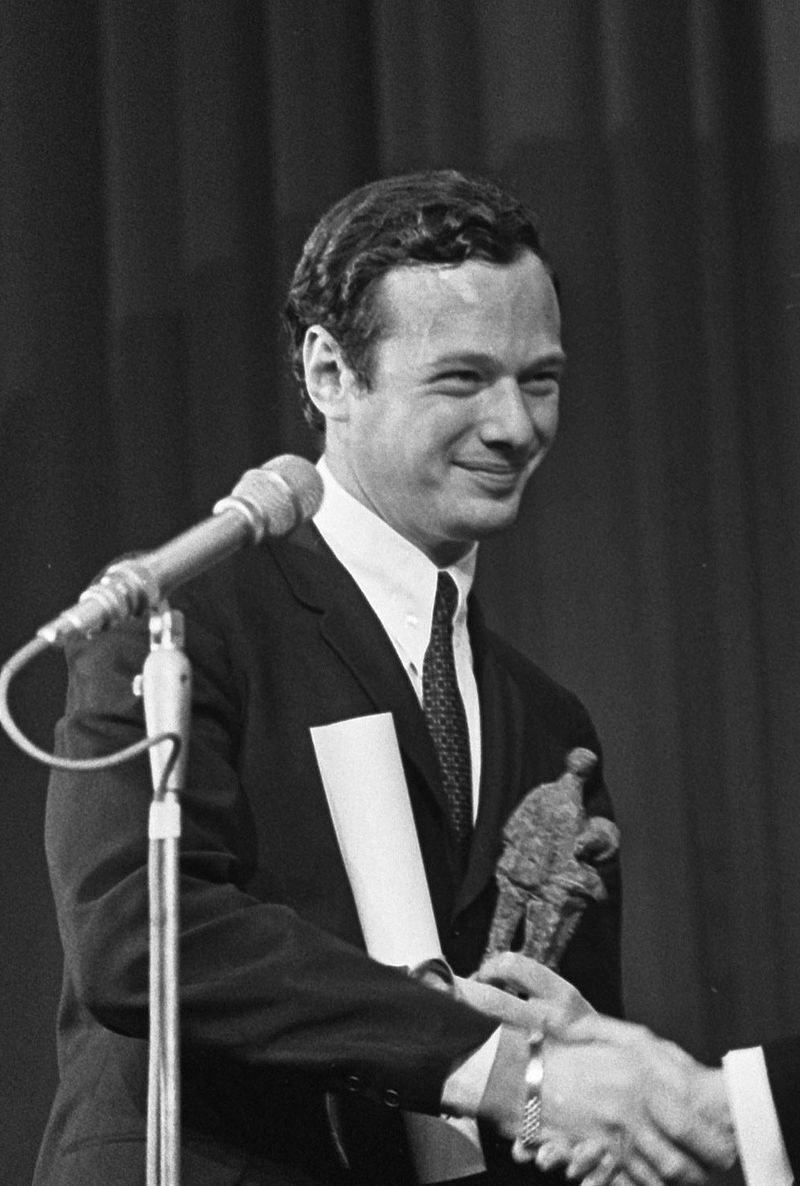Life in Liverpool became stifling. In 1956, Epstein convinced his father to give him leave from the business to attend the Royal Academy of Dramatic Art (RADA) in London. His contemporaries included such performers as Susannah York, Peter Blythe, Peter O’Toole, Albert Finney and Joanna Dunham. While Epstein was a respectable actor, he realized that he would never advance beyond secondary roles. He did not return for the fall term, ending what then seemed to be another dead-end venture outside the family business.
Rather than send Brian back to armchairs and cocktail tables, Harry teamed him with Clive for a new spin-off business, North End Music Stores (NEMS), devoted to domestic and electronic goods. Clive was responsible for the hardware department, including washing machines and radios. Brian was put in charge of the record section. He was responsible for the selection, purchase and in-store promotional display of recordings from all genres. He developed a keen ear for anticipating pop music hits and ordering stock accordingly. In short order NEMS became the place in Liverpool to find music and the store developed a reputation for unrivaled customer service. This included “listening booths” that allowed customers to preview discs before purchase, which made the well-stocked NEMS stores a favorite teen hangout. Young fans could commandeer a booth and sample the latest releases. It was also NEMS policy to guarantee to provide any record that a customer requested. And it was this promise that led Epstein to take notice of the local group with the odd name playing in the club down the road.
Now a confident businessman, he was looking for a bridge that would bring him back over to the artistic world. His sights were set on a life beyond Liverpool: He just hadn’t yet worked out how to get there. In some ways, says Geller, his vision of a better life was a legacy of his Jewish upbringing. “He reflected the attitude of Jewish immigrants that each generation would become more successful. They would look to America, especially New York, with a bit of envy; success there became a goal. This was especially true in show business. America had its own kind of glamour. Epstein was not provincial. He was cosmopolitan. Local success was not enough for him. He could envision more.”
The little-known band and its first-time manager had found each other at the perfect time. The Beatles had reached the glass ceiling for rock ‘n’ roll bands in Liverpool. In Eppy, as they called him, the Beatles had found a manager with integrity and honor, primed to devote himself to their success in a way no one else could.
“Brian fused everything,” says Nat Weiss. “The Beatles were together before they met Brian and they had the talent. But it was Brian who was the emotional and psychological catalyst. He had the vision to say that the Beatles would be bigger than Elvis in 1961.”
Epstein treated his band with respect; in return, they listened to him. “He was in charge and they did what he said,” George Martin, the man who would later become their producer, told Geller. “I mean, he was their only hope.”


One thought on “Brian Epstein: The Man Behind the Beatles”